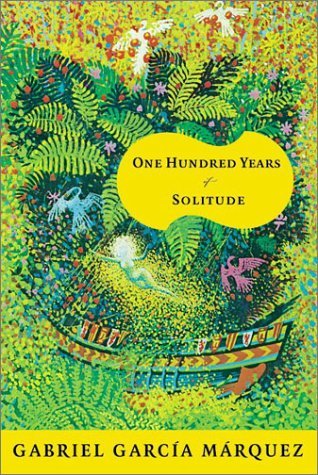Browsing book blogs, reading reviews and especially writing them means that I have a little bit more of a notion of what new (or not so new) books are being hyped at any given time. There are always a few "books of the moment", especially at that annoying end of the year period when everyone seems to hype up the same books. But I was reading a random comment today about the oft-recommended
Room, and something occurred to me: hype changes from book to book.
Readers (whether or not they would have read the book) recall the recent Franzen
Freedom uproar (and the still ongoing backlash). Here was a book so clearly hyped from day one that by the time it got to the hands of the public, so many had already formed opinions about it. This was both a good thing and a bad thing. Lots of times, the opinions of those around us influence how we view the book, particularly if we're apathetic. Strong emotions can easily influence apathy, and thus I have found myself shifting opinions more than once after reading a particularly sharply-worded opinion or review.
It's a bad thing, though, when backlash comes into play. Again, apathy is the worst emotion because it is the most easily manipulated.
If faced with extreme praise and all you feel is apathy (or mediocre emotions - pleasant acceptance, etc.), what can easily happen is your opinion - while staying the same on an absolute level - takes on a relative extremism. In order to counterbalance the gushing, the reader might focus primarily on the negative aspects in a subconscious effort to create a so-called balanced picture of the book. And so backlash is born.
 |
| Four examples of hype - and there are still many others |
But not all hype is "bloated hype", as I like to think of the whole
Freedom story.
Freedom came prepackaged with
vast amounts of praise, but the praise also had a slightly false taste to it. It was, in a sense,
pretentious praise, taking up a book that could very well have become a bestseller and a hit amongst readers with no additional effort, and inflating it until many people read it simply to prove the hype wrong. Similarly, you have a book like
The Passage, which was more "publicity hype" - the book was hyped in that it was massively advertised and just about every internet reader/reviewer could have gotten a free copy in the first couple of weeks without too much strain.
On the other end of the hype spectrum (or on
another end - like I said, there are many kinds of hype...) you have
Room. Here's a novel that's been hyped by a collection of moderate praise. Not moderate in that the praise is reserved - hardly - but rather that it came on rather quietly. The book received attention after being shortlisted for the Booker and continued to gradually accumulate praise (and some dismissal, for the most part as a result of the child narration). Reading a review of
Room doesn't feel like someone is trying to make a point - either in favor of the hype or against it - but rather a personal view on the book.
Somewhere else on this spectrum, you also find books like Harry Potter. Take
Harry Potter and the Deathly Hallows. Obviously a book that was hyped, a significant chunk of the hype was fan anticipation. Sure, there was (a long time ago) hype regarding the series as a whole but here exists a very different kind of hype. Waiting for the next book in a beloved series and hyping up its inevitable (or not so inevitable, fans of
A Song of Ice and Fire...) new release is predictable, expected fan anticipation hype.
With the exception of Harry Potter, I haven't read these books but somehow I've managed to form opinions about them.
Freedom honestly seems like the kind of book I'd just want to punch (or maybe that's just Franzen himself...?),
The Passage seems a little too movie-esque for my taste (though I'll probably read it eventually) and
Room seems sincerely good. It sure seems like the
type of hype has influenced how I view these books...







